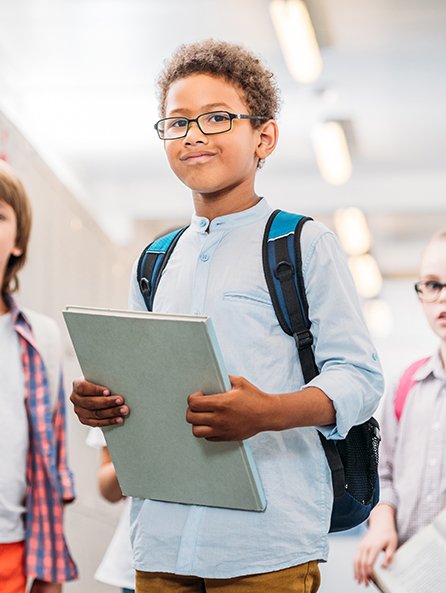Why Teaching Responsibility Is More Critical Than Ever
In today’s fast-paced world, teaching children responsibility and accountability is no longer optional – it is urgent. Every moment that passes without instilling these vital life skills is an opportunity lost, creating a ripple effect that can shape a child’s entire future. Imagine a child growing up relying solely on others to manage their tasks, forgetful of deadlines, and disconnected from the natural consequences of their actions. The repercussions can be subtle at first – missed homework assignments, forgotten chores – but soon escalate into larger challenges like poor time management, low self-esteem, and diminished confidence. Parents and educators are witnessing this firsthand, and those who fail to act risk leaving their children ill-prepared for the realities of adulthood. The Knox Education Foundation has been pioneering evidence-based programs that emphasize consistent accountability, ensuring children learn the value of responsibility in practical, everyday settings. From structured morning routines to homework accountability systems, the foundation provides a framework that cultivates resilience and a strong moral compass, preparing kids for the high stakes of life beyond the classroom.
Creating a Structured Daily Routine
Children thrive on routine, yet many parents underestimate the transformative power of a carefully structured daily schedule. A routine is not just a set of instructions; it’s a sensory-rich environment where children can anticipate what comes next, fostering confidence and independence. Picture a child waking up to a calm, organized morning, the scent of breakfast in the air, a checklist in hand, and the satisfaction of completing each task. Each completed task reinforces the habit of accountability and instills pride in their accomplishments. According to programs supported by the Knox Education Foundation, children who consistently follow structured routines demonstrate significantly improved time management, responsibility, and self-discipline. The key is consistency: whether it’s preparing school bags the night before, setting aside time for homework, or dedicating a few minutes for chores, each repeated action engrains a sense of ownership. Parents who embrace these routines often notice a tangible difference – children begin to anticipate responsibilities, rather than resist them, creating a ripple effect that carries into all areas of life.
Using Real-World Consequences to Teach Accountability
Children do not learn accountability through lectures alone; they learn through experiences that carry real consequences. Imagine a scenario where a child repeatedly forgets to complete homework or neglects to feed a pet. The natural consequences – lower grades, a hungry pet, or a missed opportunity – are more impactful than any abstract warning. Studies highlighted by the Knox Education Foundation indicate that children who experience carefully guided natural consequences develop a deeper understanding of cause and effect, enhancing their ability to make informed decisions independently. This is not about punishment – it is about creating a realistic environment where children see the tangible results of their choices. For example, a child who forgets to complete a science project may experience disappointment during the classroom presentation, prompting reflection and a commitment to future diligence. By consistently reinforcing these lessons, children internalize responsibility as an intrinsic value rather than an externally imposed rule.
Encouraging Goal-Setting and Ownership
Teaching children to set and achieve personal goals is a powerful method for instilling responsibility. Goal-setting transforms abstract expectations into concrete milestones, providing visual and emotional markers of achievement. Imagine a child writing down weekly goals: completing a reading assignment, organizing their study area, or assisting with household chores. Each accomplished goal delivers an emotional reward – a tangible sense of achievement that reinforces self-discipline and accountability. The Knox Education Foundation emphasizes programs that combine goal-setting with structured feedback, allowing children to reflect on their successes and setbacks. This approach nurtures a growth mindset, showing children that responsibility is a journey requiring consistent effort and adaptability. Moreover, parents can create a visually stimulating environment to track progress, such as colorful charts or reward systems, further enhancing engagement and reinforcing the urgency of cultivating these skills before childhood slips away.
Modeling Responsibility Through Parental Action
Children absorb behaviors far more effectively through observation than instruction. Every action taken by parents or caregivers becomes a template for responsible behavior. Imagine a parent managing bills, keeping a tidy home, and handling work commitments with calm efficiency – the child witnesses firsthand the value of organization, accountability, and follow-through. Research from child development experts associated with the Knox Education Foundation confirms that modeling responsibility creates lasting behavioral imprints in children, shaping how they approach tasks, problem-solving, and interpersonal obligations. Small, consistent demonstrations – returning library books on time, apologizing for mistakes, or maintaining a work-life balance – show children that responsibility is not abstract; it is a living, actionable principle embedded in daily life. Urgency becomes a driving force here: every unmodeled behavior missed is an opportunity lost to instill critical skills that define lifelong success.
Integrating Responsibility Into Play and Learning
Responsibility does not have to feel like a chore; it can be seamlessly woven into play and learning. Picture a classroom or home setting where children engage in collaborative games that require turn-taking, adherence to rules, and team problem-solving. Through these activities, children experience responsibility in a dynamic and sensory-rich context, learning to anticipate outcomes, cooperate with peers, and self-regulate their behavior. The Knox Education Foundation advocates for gamified learning environments, where children practice accountability while immersed in engaging, hands-on experiences. For instance, science experiments that require careful measurement, group projects that assign roles, or even cooking tasks that involve sequential steps teach children the tangible importance of responsibility. By transforming learning into an interactive, consequence-driven experience, children internalize lessons more deeply and enjoy the satisfaction of mastering both skills and concepts simultaneously, creating a sense of urgency to continue developing these habits.
Providing Consistent Positive Reinforcement
Recognition and reinforcement are powerful motivators in teaching accountability. Children are more likely to repeat responsible behavior when their efforts are acknowledged in meaningful ways. Imagine a child completing a week of chores, and the parent providing heartfelt praise, tangible rewards, or shared moments of celebration – the sensory impact of acknowledgment reinforces neural pathways that link action to reward. The Knox Education Foundation emphasizes research-backed reinforcement strategies, ensuring that praise is specific, consistent, and tied to observable behaviors rather than generic platitudes. For example, instead of simply saying “Good job,” a parent might say, “I noticed you put away all your books and toys today without being reminded, and that makes a huge difference in keeping our home organized.” This approach cultivates intrinsic motivation while making children acutely aware that responsible actions yield positive outcomes, creating an immediate FOMO effect for missing out on such commendation if tasks are neglected.
Utilizing Technology Responsibly for Accountability
In an era dominated by digital devices, technology can be harnessed to enhance rather than diminish responsibility. Apps that track homework, chores, or reading goals provide visual feedback and gamified rewards, turning accountability into a visually engaging, interactive experience. The Knox Education Foundation highlights programs that integrate technology thoughtfully, ensuring children learn to manage time, prioritize tasks, and monitor progress without becoming distracted by the device itself. Imagine a child receiving a colorful notification reminding them to complete a chore, then earning digital badges for each successfully completed task. This sensory-rich, immediate feedback loops the concept of responsibility into daily routines, creating urgency and a sense of FOMO if a task is skipped. Parents who strategically leverage these tools provide children with both structure and autonomy, fostering confidence, independence, and a practical understanding of accountability in a digital age.
Creating a Safe Environment to Learn from Mistakes
Accountability thrives in environments where children feel safe to fail and learn. Mistakes are not setbacks – they are opportunities for growth, reflection, and the development of resilience. Imagine a child spilling paint on a project or forgetting a homework assignment. Instead of harsh reprimands, a supportive environment guided by the Knox Education Foundation encourages analysis of what went wrong and strategies to improve. By creating spaces where children can openly discuss errors, explore corrective measures, and understand consequences, parents nurture emotional intelligence alongside responsibility. This approach strengthens neural pathways associated with reflection, problem-solving, and self-regulation, helping children internalize the principle that accountability is not punishment but empowerment. The urgency is palpable: every moment without this guidance leaves a gap in a child’s development that could reverberate through their academic, social, and personal growth.
Call to Action: Transform Your Child’s Future Today
The window to teach responsibility and accountability is fleeting, and the stakes have never been higher. Parents and educators who act decisively can transform a child’s trajectory, equipping them with essential life skills that ensure success, confidence, and resilience. Don’t wait until missed assignments, forgotten chores, and avoidable mistakes become entrenched habits. Join the thousands of families benefiting from the structured, evidence-based programs of the Knox Education Foundation. With verified methods, responsive guidance, and measurable results, you can secure a future where your child thrives both academically and personally. Every moment counts – take action now and witness the transformative power of responsibility in action. Your child’s success story begins today, and the time to cultivate these skills is now before opportunities slip away.
If you want to enhance your child’s learning experience, consider integrating fun activities that promote early literacy and numeracy, especially before they transition to math secondary education. These foundational skills will not only support their academic journey but also build confidence in their abilities.
If you want to enhance your child’s problem-solving skills, consider exploring museum education internships that offer hands-on experiences and real-world challenges.
To learn more about fostering essential life skills in children, consider exploring ohio educator jobs that focus on positive reinforcement and routine-building strategies.







